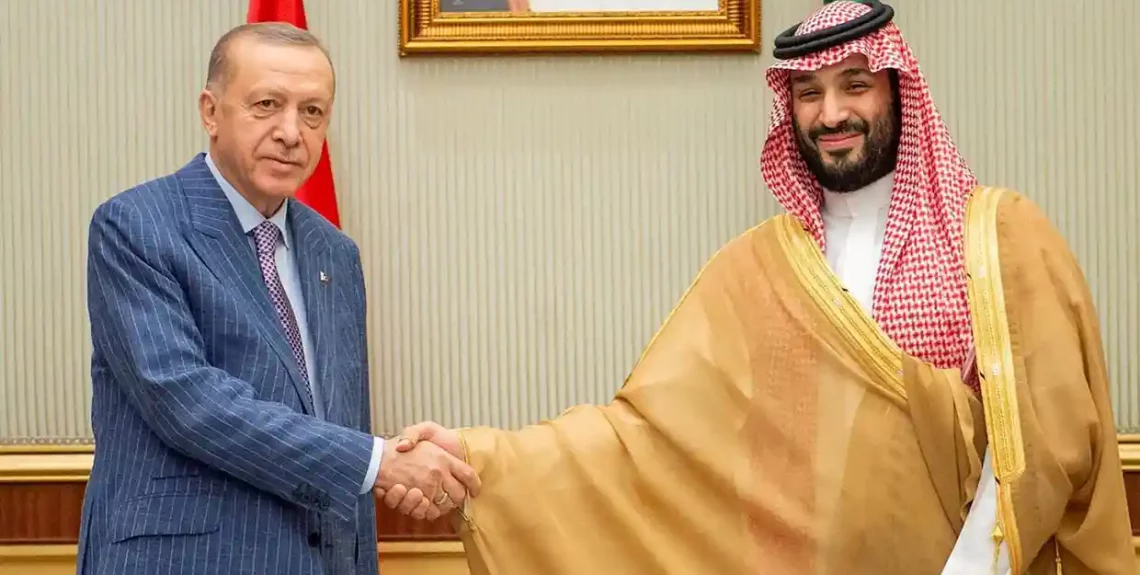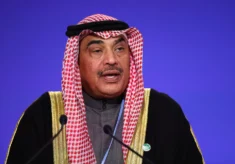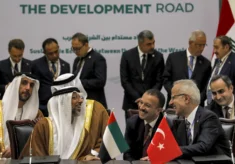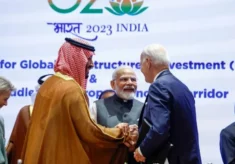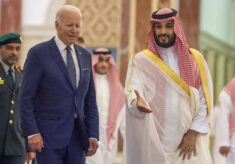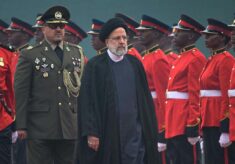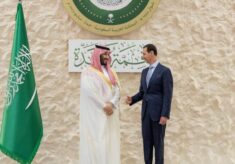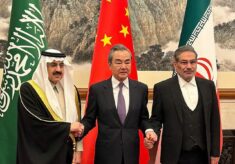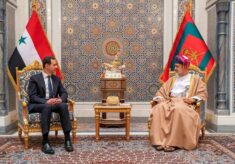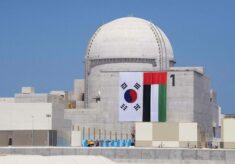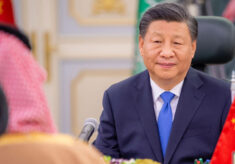The wind of normalisation that has been blowing across the Middle East and North Africa (MENA) has pushed Turkey on the Gulf’s shores once again. After a historic stay in the United Arab Emirates (UAE) earlier this year, Turkish President Recep Tayyip Erdogan visited Saudi Arabia in late April, completing a remarkable U-turn that saw Ankara progressively mending ties with former foes.
Meeting with King Salman bin Abdulaziz al-Saud and the Crown Prince Mohammed bin Salman (MBS) during his two-day stay in the kingdom, Erdogan expressed his desire to strengthen bilateral relations with Riyadh, which came under severe strain after the killing of journalist Jamal Khashoggi in the Saudi consulate of Istanbul in 2018. According to US intelligence released immediately after President Joe Biden took office, MBS had likely orchestrated the assassination, instructing the Saudi hit team responsible for the killing and dismemberment of Khashoggi. The intelligence corroborated earlier indications from Erdogan, who had consistently accused the highest levels of Saudi government of being responsible for the killing.
Despite the compelling evidence, the Saudi Crown Prince has always denied any involvement, shifting the blame to high-ranking officers that went rogue. As a result of an internal enquiry, five people were sentenced to death but a Saudi court overturned the verdict in 2020 giving jail terms of up to 20 years to unnamed defendants. On the other hand, the investigation in Turkey hit a dead end earlier this month when the trial of 26 suspects was suspended and the case handed over to Saudi Arabia. The decision, which was vividly criticised by human rights groups, likely removed the last obstacle to the strategic rapprochement between Ankara and Riyadh, a trend that goes beyond the polarisation that saw the two regional powers sitting on different sides of the political divide that ruled the MENA region in the twilight of the Trump administration.
The economic drivers of the rapprochement are particularly evident on the Turkish side, especially when considering the faltering state of Turkey’s economy in the aftermath of the COVID-19 pandemic and the consequences of the war in Ukraine. The Turkish lira has plummeted last year, falling 44% in value against the US dollar, while the official inflation has skyrocketed to 61%. In this context, the lifting of the Saudi boycott of Turkish goods, which had cut Ankara’s export to the kingdom by 90%, would help ease the economic crisis. Together with the US$4,9 billion currency swap agreed with Abu Dhabi and the UAE’s announcement of a US$10 billion fund to support investments in Turkey, these measures will likely boost Erdogan’s chance of being re-elected next year.
For Riyadh, as well as for Abu Dhabi, the political benefits of the reconciliation with Ankara are much more important, as they heal the intra-Sunni rift of the past few years and could present a united front against the hegemonic ambitions of Iran. Furthermore, the rapprochement is in line with the normalisation process in the region, which, among other things, include Iran-Saudi talks, whose fifth round has been recently held in Baghdad. Another sign that, amid strained relations with Washington, particularly in the aftermath of the Ukraine war, the Gulf is trying to find its place in the post-American era, whatever the outcome of the ongoing negotiations on the nuclear deal.

